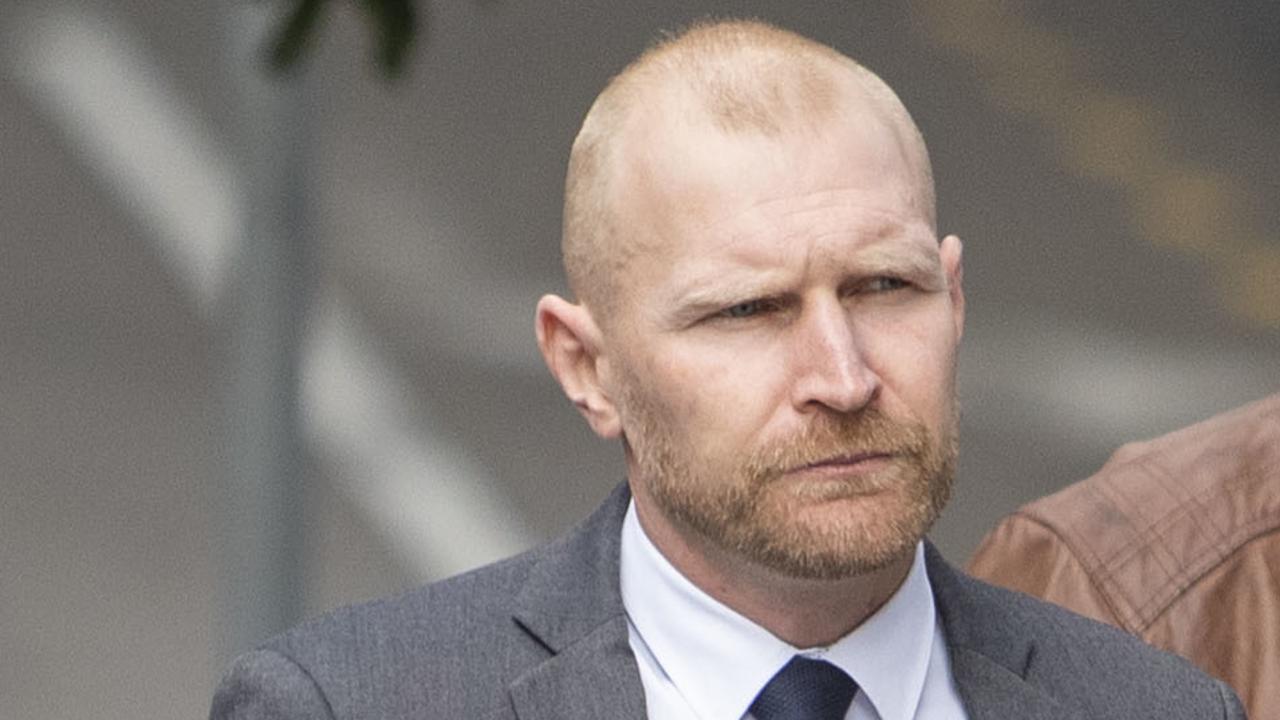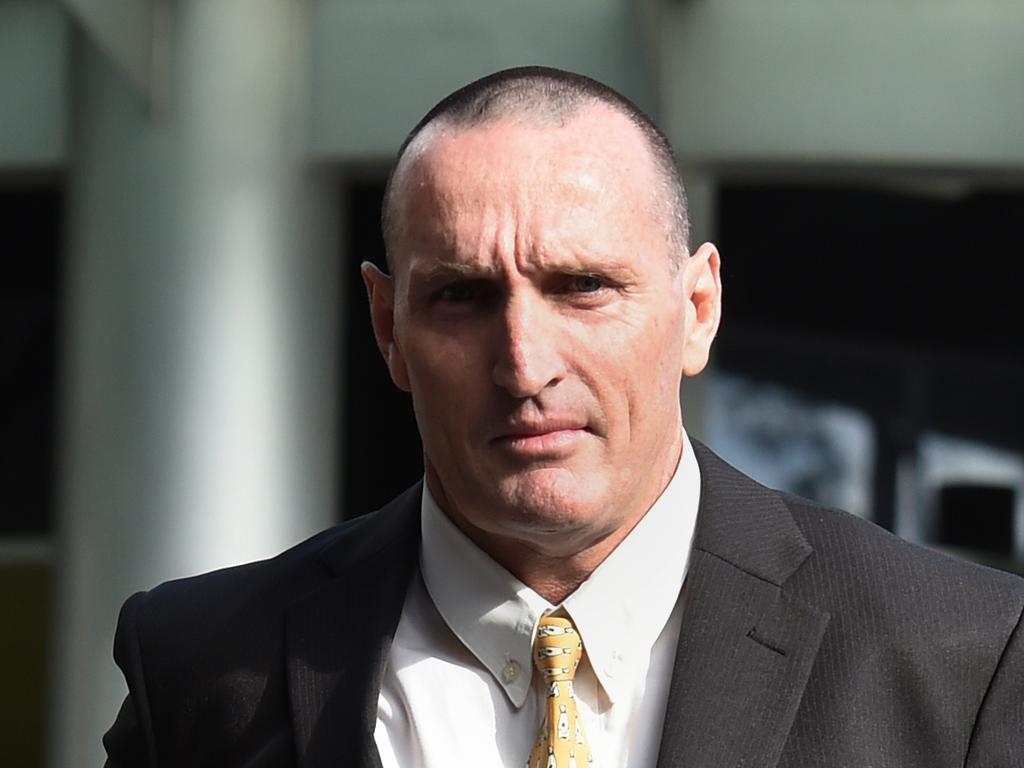Embarrassing case collapses spark calls for review into Crime and Corruption Commission
The collapse of another high-profile prosecution has prompted calls for an inquiry into the Crime and Corruption Commission, with allegations the “cavalier” watchdog is undermining the integrity state’s justice system.
Allegations the Crime and Corruption Commission is engaging in “cavalier and reckless” practices which undermine the state’s justice system have sparked calls for a review into the powerful watchdog.
The criticism follows the collapse of yet another high-profile CCC prosecution case, one of at least nine in the past year, after a judge directed a jury to find senior Queensland Police officer Michelle Stenner not guilty of perjury charges brought against her by the commission.

Gnech and Associates managing director Calvin Gnech, an expert in criminal law and CCC investigations, said the Stenner case was not unique and followed the failure of several major cases, including fraud charges against a group of Logan councillors in May.
“These CCC prosecutions caused both a catastrophic and irreversible impact upon the seven ex-councillors, by destroying their reputations and careers,” he said.
“The concerning part is this is far from the first time the CCC have engaged in such cavalier and reckless prosecuting practices.”
The botched case against the councillors prompted an inquiry by the parliamentary crime and corruption committee into the watchdogs’s handling of the matter.
During the inquiry’s closing submissions last month, counsel assisting Jonathan Horton said State Parliament could consider sacking CCC boss Alan MacSporran for failing to ensure the organisation acted impartially in relation to the councillors.
In a column for The Courier-Mail, Mr Gnech has today called for an inquiry into the broader practices of the CCC, specifically into whether the watchdog does or ever has held authority to prosecute criminal offences.
“There are only two criminal prosecuting agencies in Queensland and that is the Queensland Police Service and the Director of Public Prosecutions,” he said.
“The CCC currently engage in a practice of suggesting they have nothing to do with criminal prosecutions and it is their seconded police officers working at the CCC who are exercising their own independent discretion to lay criminal charges as they see fit.”

However he said that claim was discredited by a police officer during a committal hearing of the Logan councillors.
“The way the CCC is behaving with their own ‘extrajudicial’ prosecutions is seriously undermining the integrity of the criminal justice system here in Queensland,” he said.
“It is of some significant concern when it appears confidence has been lost in the CCC when it comes to criminal prosecutions.”
In submissions to the parliamentary inquiry, the Queensland Law Society raised concerns about the CCC’s practices, including its involvement in the prosecution of cases “when these matters should be referred to a prosecuting authority”.
The QLS also submitted that it was of “significant concern, and contrary to law” if the watchdog obtained information using its coercive powers and then used that information for another purpose such as legal proceedings.
“Therefore, we consider it necessary for a policy or guidelines to be developed to give clear advice on how and when information should be disclosed,” the QLS wrote.
“…it is the view of QLS that information about a person obtained via coercive means should not be used as evidence in legal proceeding involving that person, without their express consent.”
The QLS called for the committee to investigate instances where the CCC had taken an active role in prosecutions and recommended it seek clarification about the role of police officers seconded to the organisation.

The criticism follows a slew of failed high-profile prosecutions in recent years including against former police prosecutor turned defence barrister Martin Longhurst whom a jury took less than 30 minutes to acquit.
Criminal barrister Alastair McDougall was also vindicated when a judge directed a jury to find him not guilty after he was accused of giving false testimony at a CCC hearing.
A CCC spokesman said they were unable to comment on the issues raised.
“The Parliamentary Crime and Corruption Committee’s (PCCC) inquiry into the CCC’s investigation of former councillors of Logan City Council and related matters remains ongoing,” the spokesman said.
“It is not appropriate for the CCC to comment on matters relating to the inquiry while they remain under consideration of the PCCC and before the PCCC’s report is finalised.”
The report is due back by the end of this month.
MICHELLE STENNER
Senior Queensland Police officer Michelle Stenner last month walked free from court after being acquitted of three perjury charges.

After a five-day trial in the Brisbane District Court, Judge David Kent told the jury that there was no evidence to support an element of the case against Superintendent Stenner.
The top cop was dragged through a four-year legal process including two trials after a juror in her first trial deliberately disobeyed directions not to make external inquiries outside of court.
MARTIN LONGHURST
It took a jury less than 30 minutes to find former police prosecutor Martin Longhurst not guilty of a misconduct charge brought against him by the CCC.
The respected barrister was accused of misconduct for downgrading a traffic charge for an acquaintance.

The jury rejected the CCC’s case and found in favour of Mr Longhurst who had argued his actions were simply a case of him fairly and properly exercising his prosecutorial discretion.
Shockingly, the case was tried twice after a first jury was unable to reach a verdict, meaning the lawyer was forced to endure two trials before the matter was resolved in October 2019.
ALASTAIR MCDOUGALL
High-profile criminal barrister Alastair McDougall was accused of knowingly giving false testimony at a CCC hearing.
But before the first day of his trial in the Brisbane District Court in July this year had even finished, the judge determined he had no case to answer and directed the jury to find him not guilty.

The judge found the question Mr McDougall had been asked during a coercive hearing that led to the charge was “so vague as to cause some real concern about what weight could be placed on the answer given”.
MICHAEL NEILAND
Police officer Michael Neiland was charged with an offence of misconduct in relation to public office over allegations he had accessed QPRIME to obtain information which he disclosed to a relative.

However a judge dismissed the case after concluding that the charge did not stack up because the information he was accused of sharing was available to the public and that no benefit was derived as required under the legislation to prove the charge.
LOGAN COUNCILLORS
Several Logan councillors, including Phil Pidgeon and Trevina Schwarz, lost their jobs and endured years of stress after the CCC wrongly charged them with fraud over the sacking of a former council CEO.

In April, the DPP dropped fraud charges against the eight councillors, many of whom spoke about the toll the charges had taken on their lives and careers.
The CCC was criticised for overstepping by wading into an industrial relations dispute and the case has sparked an independent review into the watchdog.



